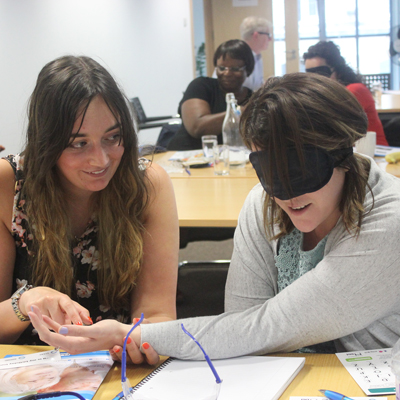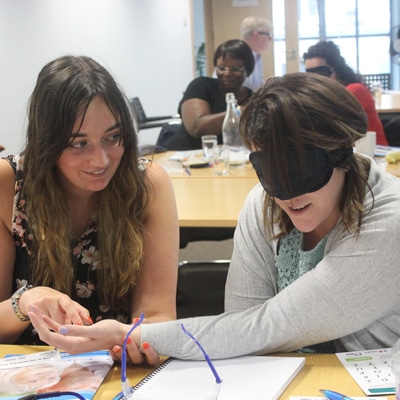
In Good Hands
We held the course at our office, but it was run by our friends at In Good Hands, the dual sensory loss experts. You can read more about the issue in a blog on our site by one of the trainers, Bernard Quinn. I was charged with telling people about the course and myself, and communications colleagues talked about it in our newsletter and on social media.
When the course came along it was exciting to go into the room and take photos. I wanted to stay as long as possible because it was fascinating to hear what was being said. In Good Hands say that there has been problem with low identification and therefore some missed opportunities to prevent, reduce or delay the development of need for care. So it’s all about spotting the signs of dual sensory difficulties in older people, and then looking at how to appropriately and comprehensively understand the impact the condition is having on their wellbeing.
Sight and Hearing Challenges with Age
Suffice to say that you’re much more likely to have both sight and hearing challenges as you grow older; two-thirds of people with co-occurring sensory loss are over 70. On top of that, imagine how hard it must be if you can’t see what you’re eating or hear what someone is saying to you. And how much more difficult that would be if you also had dementia. Someone with dementia who can’t see well is more likely to have falls, to experience hallucinations and to have difficulty finding their way about the home.
I feel lucky to have overheard some of the course content and to have met some of the people being trained; these people are the staff members that the Care Act 2014 was specific about in terms of new responsibilities. They’ve got an important job to do and we’ll continue to support others to carry out this important role.
Upcoming Specialist Deafblind Assessors Courses at SCIE
Find out more about upcoming Specialist Deafblind Assessors Course as SCIE – the next dates are in December and January






